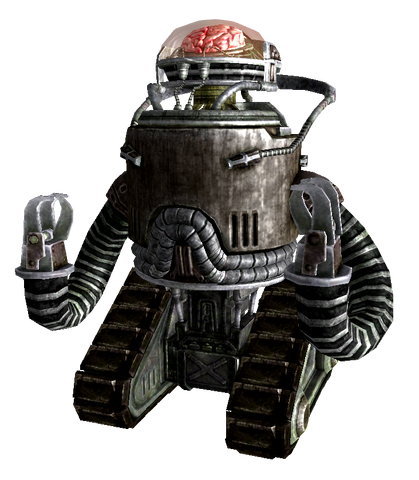
This is a companion-piece to my last post on clockpunk undead. That was all about installing clockwork components, and clockwork brains, into animated flesh. This post deals with the opposite: grafting living brains into clockwork bodies.
Among the wealthier urban classes in ATWC, the use of clockwork prostheses to replace lost limbs is relatively commonplace. Lose a hand in a duel? Get a clockwork replacement. Both legs blown off in a freak gunnery accident? You'll be running around on shiny bronze feet in no time! Having to wind them up all the time is a pain, of course; but it's much better than the alternative. Given this, it's not that surprising that when they see a loved one dying of stomach cancer, or lung disease, or whatever, their minds immediately turn to clockwork alternatives. Can't we replace those as well, they ask their doctors? Can't we just replace the whole thing?
At this point, their doctors usually start trying to let them down gently. (Golden Ones are very good at this.) Yes, some amazing work is being done with brass lungs and clockwork-powered hearts these days, and, yes, some of the Steel Aspirants have replaced truly shocking amounts of their own torsos with mechanical substitutes; but turning grandpa into a brain-in-a-jar controlling a clockwork body requires a level of expertise in both medicine and clockworking which is out of reach for all but the truly astronomically wealthy. Then there are the adjustment issues; it can take years to learn how to operate a robotic body via mental manipulation of the clockwork computer connected to your brain, and even then most people never get very good at it. Would grandpa really want you to waste his entire fortune just so that he could spend a few more years in a semi-functional robot body, silently weeping with frustration as he bumps into the wall of his bedroom yet again?
But there are two factors which ensure that the technology to transplant human brains into clockwork bodies is still used from time to time. The first is that the bodies, once built, are reusable; so a family which has already gone to the trouble of buying a clockwork body for grandpa, complete with brain-jar, might well keep it around after his final death, ready to be used by grandma or auntie or whichever elder of the family is the next to fall mortally ill. The second is that psychics, who have a lifetime of experience at manipulating objects with their minds, find the transition to clockwork bodies very much easier than other people: so if grandpa is part of one of the Mindblade orders, or an Adept of the Diamond Mind, then his telekinetic powers may well reduce the adjustment period he needs to learn to use his new body from years to days. A number of the most prosperous Diamond Mind schools even transfer their ailing senior tutors into clockwork bodies as a matter of course, viewing it simply as an efficient means of ensuring that their students are able to benefit from their teaching expertise for as long as possible.
 |
| Alchemical golem miniature, made by WizKids. |
These, then, are the Reborn: clockwork automata with the brains of mostly-dead humans instead of clockwork computers inside their skulls, controlling their mechanical bodies via complex Logician implants which connect directly to their gearwork. (Some psychic Reborn opt to dispense with the implants and simply control their bodies directly via telekinesis.) Keeping a human brain alive in a vat of nutrients requires the attentions of an expert doctor, such as a Golden One or one of the Serpent Folk, of at least 5th level; this doctor must spend at least 30 minutes per day checking and adjusting the balance of fluids and the level of electrical conductivity in the brain-jar, or risk irreversible brain damage. (For each day in which this 'check-up' is missed, roll 1d6; the Reborn loses this many points of Intelligence, Wisdom, and Charisma, and if any are reduced to 0 then they die. Going back to their normal medical routines will restore lost points at a rate of 1 per day, but the Reborn must pass a FORT save or lose 1d3 points of each stat permanently.) Their clockwork body and logician implants also need to be maintained and repaired if damaged, which means that they or their attendant must have a Tech Rating of at least 5. (If they're a psychic who didn't bother with the implants, then Tech 4 will suffice.) Their bodies cost no more than any other clockwork body would, but the implants which connect them to their brains are staggeringly expensive. If you have to ask how much they cost, you definitely can't afford it.
Aside from this, Reborn follow all the same rules as Brass Men. Normally it takes them 1d6 years to get used to operating their new bodies, although for psychic characters this is reduced to a mere 1d20 days; psychic Reborn also have the option of winding themselves up using their own telekinetic powers, allowing them to operate indefinitely without any need of fuel. As long as they receive proper medical and mechanical upkeep, they can survive for up to (1d10 + half their Constitution score) years before finally suffering irreversible degradation of their brain tissues and sliding into final senility and death.
Rumours persist of a special alchemical formula which allows the brains of the Reborn to survive indefinitely inside their jars, even without medical upkeep. These same rumours usually also claim that the Wicked King had this procedure used on him when he grew old, and that he now lives on as an immortal evil brain inside a giant bronze murder-robot somewhere near the top of the King's Tower. Hopefully that bit, at least, is completely untrue.

No comments:
Post a Comment